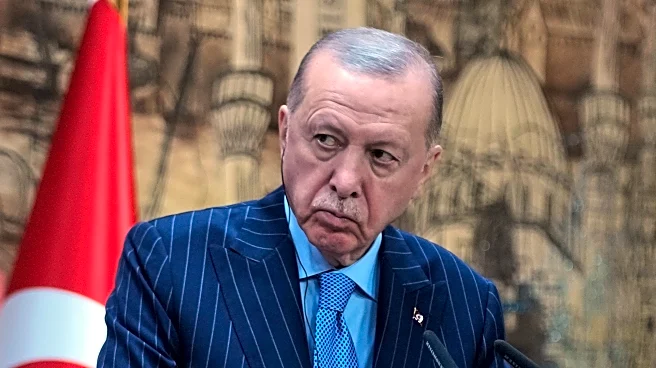What's Happening?
Tang Renjian, China's former Minister of Agriculture and Rural Affairs, has been sentenced to death with a two-year reprieve for accepting bribes totaling USD 38 million. The Intermediate People's Court of Changchun in Jilin Province announced the sentence, which includes the confiscation of Tang's personal assets and the recovery of his illegal gains for the national treasury. Tang, who previously served as governor of Gansu province, was found guilty of using his positions to assist others in business operations and project contracting in exchange for bribes. The court noted that Tang's actions caused severe damage to the state and warranted the death penalty, although leniency was granted due to his cooperation and confession.
Why It's Important?
This sentencing is part of President Xi Jinping's extensive anti-corruption campaign, which aims to eliminate graft within the Communist Party and government. The campaign has led to the punishment of over a million officials, including high-ranking military figures. Tang's case highlights the ongoing efforts to promote clean governance in China, although critics argue that the campaign may also serve as a tool for political purges. The repercussions of such high-profile cases are significant, as they reinforce the government's stance against corruption and may deter future misconduct among officials.
What's Next?
Tang's sentencing may lead to further investigations and trials of other officials suspected of corruption. The anti-corruption campaign is likely to continue, with potential implications for China's political landscape and governance. Observers will be watching for any shifts in the balance of power within the Communist Party as a result of these actions.
Beyond the Headlines
The ethical implications of Tang's sentencing raise questions about the balance between justice and political maneuvering in anti-corruption efforts. While the campaign promotes accountability, it also underscores the potential for using legal measures to consolidate power and eliminate rivals. The long-term impact on China's political culture and governance structures remains to be seen.










